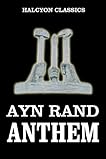photo by andy.w2008
At first glance, Mary Todd and Abraham Lincoln seem ill-matched: she, the elegant daughter of wealth and society, and Abraham the homely son of a poor frontiersman. But the two things they held in common were enough to cement their lives together in matrimony, namely a shared literary interest and an unabashed political ambition.
Mary enjoyed a truly classical education, some of it obtained surreptitiously when she sought out the tutorship of a man who was headmaster of a private boys' school. She mastered classical literature and languages while other girls her age were sewing a fine seam. All her life she remained an avid reader and lover of the arts.
Abraham, however, did not have opportunity to sit under learned scholars but his similar thirst for knowledge drove him to self-education. Philosophy, Burns, poems of despair such as Holmes' "Last Leaf," and other classics all became fodder for his mind's ravenous appetite. He repeated things aloud to himself to fix them in his mind. He read to himself, to Mary Todd, and to his children. In the darkest days of the Civil War, when no man or woman could share his sorrow and perplexity, he drank deeply of Shakespeare's tragedies and the Bible, especially the book of Job.
The self education of this man produced something of a rarity: a political-poet. His succinct, well chosen words were always penned to be spoken to an audience, and in some cases his words proved absolutely spell-binding. Lincoln's "lost speech" was so profoundly moving that the journalists laid down their pens, listening as if entranced.
If the literary magnet was what drew their minds together as one, it was the fire of political ambition in their bellies that cemented the relationship between Mary Todd and Abraham Lincoln. Since Abraham was subject to bouts of "hypo", which today would probably be diagnosed as manic depression, Mary's ambition was strong enough to carry them both. Without her, he may not have been able to sustain the effort that was required to rise to the top of the political barrel.
Mary would pay dearly to promote her husband's political career. In the early days of their marriage, she was home alone with two small children for extended periods of time as Lincoln rode the circuit as a lawyer. When he did arrive home, her loneliness was sometimes painfully extended as she had to wait out Abraham's bouts of "hypo."
"His friends were saying, 'Poor Abraham Lincoln, married to Mary Todd'...If they knew the full facts, if they had to live with him, might they not rather say, 'Poor Mary Todd, married to Abraham Lincoln'?"
The saving grace: the ability to re-engage in companionship and camaraderie after such absences had ended. Mary and Abraham seemed to be able to pick up where they had left off each time, to repair the disjointedness and to move forward.
"Would you keep me company?" seems a simplistic remedy to marital loneliness and yet it is so effective. Visits to country clients, shared visits to wounded soldiers, a carriage ride in the country---none of these moments shared between Mary and abraham seem significant in themselves. Each is a slender thread, but the accumulation of many threads creates a tightly woven bond of unity, one that can survive even a civil war.
Engraved on the wedding ring that Abraham slipped on Mary's finger were the words "Love is Eternal." Irving Stone chose those same three words as the title of his biographical novel of Mary's life. It is a sympathetic novel, one that elevates Mary above the usual caricature of an ego-centric, materialistic, shrew. She was a complex woman, a woman who endured the tragedy of losing two sons and several brothers. She was not always able to bear her tragedy with grace, nonetheless she was a faithful spouse and I believe her love for Abraham Lincoln survived the fires of affliction. Her story is poignant and instructive.




























